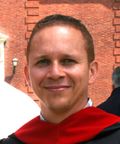And at Jeshua, and at Moladah, and at Bethphelet,(Nehemías 11:26)
And at Hazarshual, and at Beersheba, and in the villages thereof,(Nehemías 11:27)
And at Ziklag, and at Mekonah, and in the villages thereof,(Nehemías 11:28)
And at Enrimmon, and at Zareah, and at Jarmuth,
Zanoah, Adullam, and in their villages, at Lachish, and the fields thereof, at Azekah, and in the villages thereof. And they dwelt from Beersheba unto the valley of Hinnom.(Nehemías 11:30)
The children also of Benjamin from Geba dwelt at Michmash, and Aija, and Bethel, and in their villages.(Nehemías 11:31)
And at Anathoth, Nob, Ananiah,(Nehemías 11:32)
Otras publicaciones relacionadas con "Nehemías 11:29":
Nehemías 11:29 - Referencia Cruzada
Jarmuth, and Adullam, Socoh, and Azekah, (Josué 15:35)
And the Spirit of the LORD began to move him at times in the camp of Dan between Zorah and Eshtaol. (Jueces 13:25)
The king of Jarmuth, one; the king of Lachish, one; (Josué 12:11)
And Lebaoth, and Shilhim, and Ain, and Rimmon: all the cities are twenty and nine, with their villages: (Josué 15:32)
And the coast of their inheritance was Zorah, and Eshtaol, and Irshemesh, (Josué 19:41)
